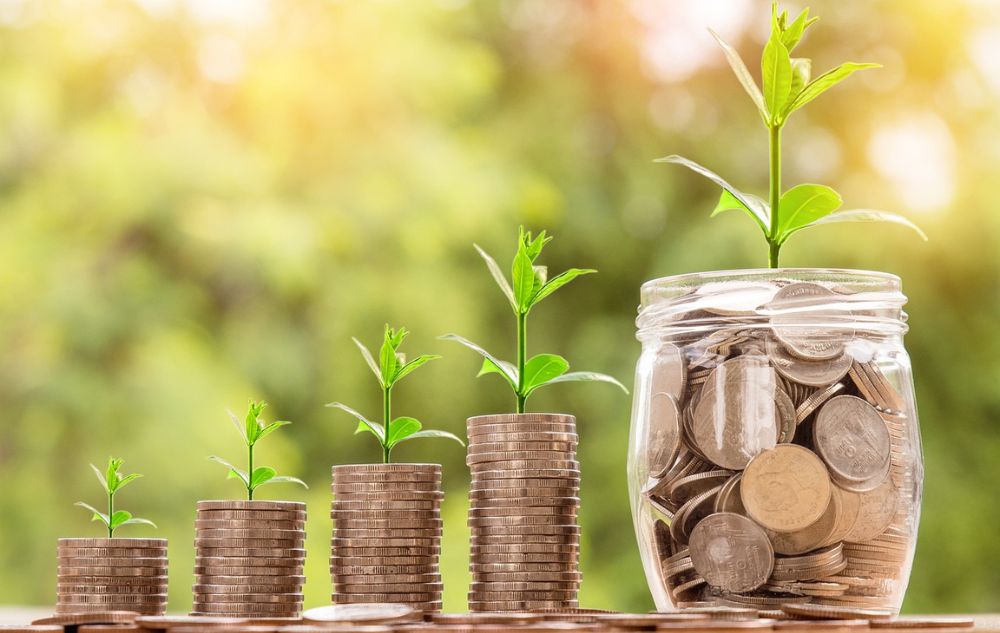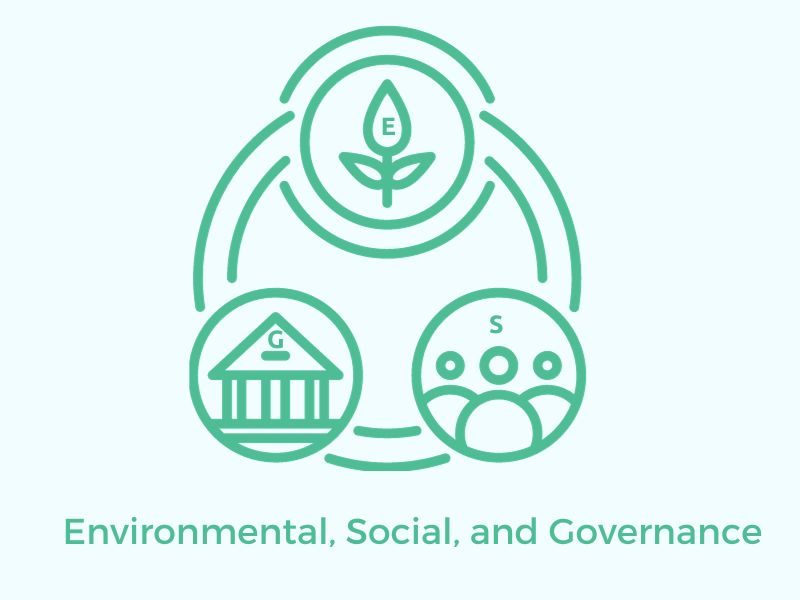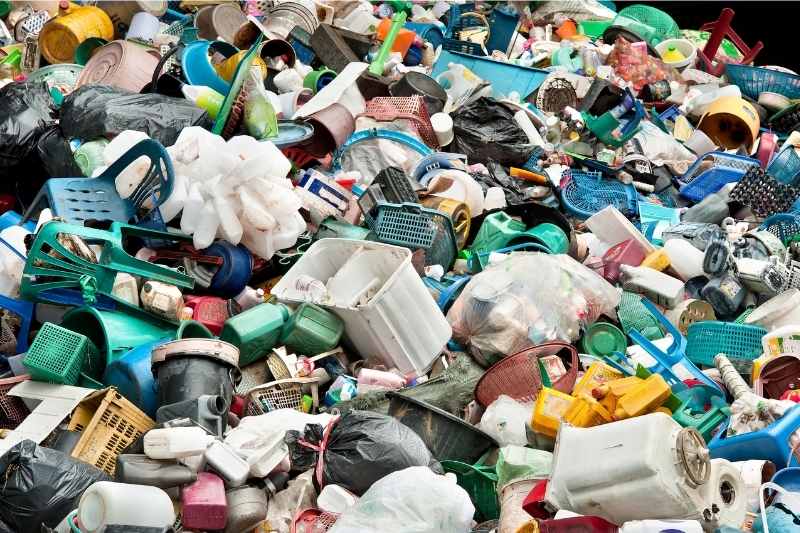Experts in Sustainable Investments Examine Consumer Interest in ESGs
“It’s not just a conversation about what feels nice,” he said. “ESG is really about being a responsible investor. It’s about being sustainable in your business practices, not just the green version of sustainable but really sustainable to ensure that your bottom line is healthy for the long term.”
Confusion surrounding ESGs is a persistent problem, especially as strategies, investments, and criteria are often mislabeled. Terminology can distract from the issues at hand, Sada Geuss, Head of Impact Strategy and Investment Manager at Trillium Asset Management, explains.
“There’s a distinction between asking people if they care about this acronym, ESGs (Environmental, Social, and Governance) are becoming a hot topic of conversation not only in conference rooms but even around kitchen tables.
ESG refers to a set of criteria that investors and companies use to assess the sustainability and ethical impact of their investments and business practices. ESG factors can be used to evaluate a wide range of companies, including those in the manufacturing, energy, finance, and consumer goods sectors.
Now more than ever before, people care about how much a company’s practices align with their own moral values.
In a recent webcast hosted by GreenBiz Group, leaders in the sustainable investment space shared how the world of sustainable finance and investing is evolving to meet the shifting demands of consumers.
Grant Harrison, GreenBiz Group director of Sustainable Finance & ESG, explained the dilemma facing many businesses these days.
“The listeners here will know well these letters ‘E, S, and G’ that now loom quite large both in the public’s consciousness and in global capital markets,” he said. “While many practitioners understand what ESG is and does, the concept has been, like so many things in 21st-century America, swallowed up by the culture wars. ESG has quickly become everything and nothing. The pushback and the pushback to the pushback has been dizzying.”
Advocacy and Investing in Personal Values
Leslie Samuelrich, President of Green Century Funds Management, explained that despite all the noise and confusion, people are still putting in the work to seek out sustainable investments.
“I think what’s working well is there’s still this steady and growing desire of individuals and institutions to actually find investments that match their values,” she said. “Despite everything – the controversy, the attack, and confusion around what ESG is – the core desire is for people to invest with their values and shop at places that measure and reflect their values.”
Pedro Henriques da Silva, Director of Shifting Trillions, Sierra Club Foundation, said industry leaders are trying to push back against the politicization of ESGs, but that the corporate world needs to do a better job at explaining how investors fit into the mix and understanding the financial outcomes of sustainable decision-making.
“If you ask them a question of, ‘do you think companies have a responsibility to their employees, in addition to their shareholders?’ You might get a yes.”
“Do you think companies can contribute to the acceleration of global warming or can, conversely, help reduce the speed of global warming? They might say yes.”
“And ‘do you want to promote those types of things within the companies and invest?’ You may get a different set of answers,” Geuss explained.
It’s imperative for companies to engage with their shareholders and, most importantly, pay attention to advocacy efforts.
On the other hand, when people choose their investments, it’s important for them to voice concerns and ideas to the companies they are supporting to keep them accountable.
“There’s a broad spectrum of ways that investors can engage with companies with lower impact to higher impact on how businesses are run and make perpetuating change within those organizations,” Geuss said.
Samuelrich expanded on that idea. “We’re telling you about the risks we’re seeing from our point of view, and we’re asking you to change your policy or practice to address it,” she explained. “It’s getting Mattel to reduce the amount of plastics it has in their Hot Wheels and their Barbie packaging, which, if anyone is a parent out there, you know how frustrating it is to even open those packages, let alone how bad it is for the environment or public health. It’s getting companies to make those concrete changes.”
Climate Change is a “Right Now” Problem.
Climate change isn’t a problem that should be kept on the back burner, Henriques da Silva stressed. Companies across the globe need to develop sustainable practices now or risk massive losses as sea levels rise, food scarcity expands, and clean water sources become a rarity.
“The important thing to remember is this – climate change is not a 2050 problem,” he said.
“It’s a right now problem, right? It’s not just about counting how much carbon there is in the air or how much plastic there is in water. It’s really about addressing the economy that puts that stuff there. It’s not just our planet’s health that we’re fighting for, but it’s our collective physical and financial health as well.”
Using the COVID-19 pandemic as a very real example, Henriques da Silva showed just how drastically economies can shift from global events that are likely to increase in frequency if the climate crisis continues at the rate we are seeing today.
“After the pandemic, we saw how office buildings were empty; and we’re now seeing that a lot of that isn’t going to come back,” he said. If we think about the way that the world changed throughout the COVID-19 pandemic – that was supposed to be a once-in-a-lifetime event. But one commonly ignored side effect of the climate crisis is that over the next couple of years, we’re expecting more pandemics like that to happen.”
To make a real impact, Henriques da Silva explains, companies need to invest in sustainability at the forefront, which could save in losses later down the road.
“Shifting trillions is simple,” he said. “It’s acknowledging that that situation is a bad situation, and it’s asking the question, ‘How do we use capital as quickly as possible toward the world that we want?’ That’s a lofty goal, but it’s also what we actually need to advance the challenges ahead.”
The “S” and “G” can’t be forgotten in the environmental conversation as well. To make progress, it’s essential to work toward a world where everyone has an equal seat at the table.
“There’s so much intersection between environmental and social issues,” Geuss said. “Give women equality, you will start combating climate change, right? Empower people, work on income inequality, work on these gaps, and you’re going to address many of the issues of climate change in that work.”
Focusing on the negative perspective won’t solve this problem in its entirety. Focusing on the tremendous impact we can make when everyone is on the same page is a huge part of the solution, Henriques da Silva urged.
“How do we collectively, all folks who recognize this as an existential threat, recognize that there’s also an incredible opportunity in investing for the world that we want, both financially and just for the health of us all?”
Interested in hearing the whole conversation? Visit GreenBiz to view this webcast and more.

Written by Carley Kimball
Freelance Journalist and OPL Content Contributor
“I’ve always tried to implement planet-friendly practices in my life but didn’t quite realize just how much of an impact individuals can make until I was introduced to One Planet Life. I’m so excited to be able to utilize my professional skills to contribute valuable information and positive personal experiences to help make the world a better place.”












